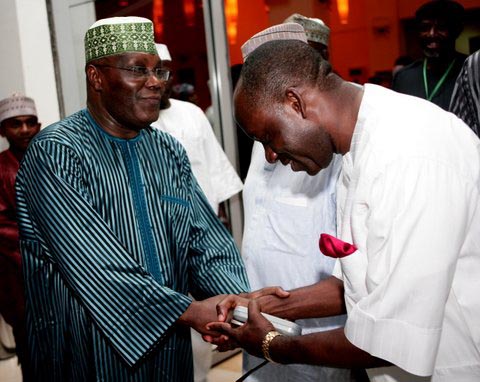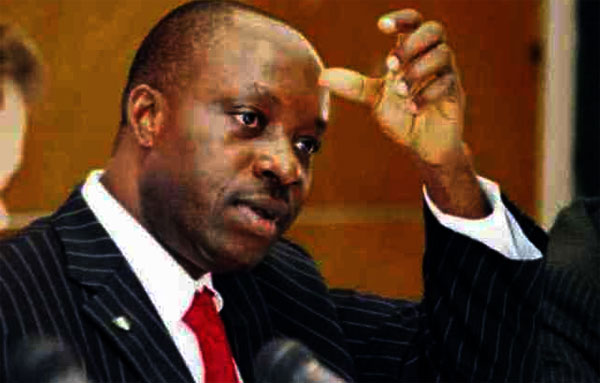
As the cacophony of 2015 election thunder reaches a deafening crescendo, it is apt that the Igbos of Nigeria take deep breath and holistically evaluate our options for the best candidate to cast our votes for the elections. This analysis is necessary in order to bring to fore, the sagacious elements of consideration that would make the best positive impact in our nation’s political journey.
Without a doubt, Igbos have consistently played a prominent role in our Nation’s political evolution. Starting since before independence in 1960, the Rt. Honourable Nnamdi Azikiwe was noted for his positive contributions towards our independence. With the attainment of Independence and adoption of British Parliamentary system of Government, Zik was only rewarded with a marginal position of a “President” while the power rested with the Prime Minister headed by Tafawa Balewa. Zik, without a doubt has remained the brightest spot of political star produced by the Igbos. He was educated, fair minded, articulate and even dreaded by his traducers. The political brilliance of Zik, coupled with the entrepreneurial successes of the Igbos earned the Igbos scorn and hatred within Nigeria. The hatred continued to this day which has often seen the Igbos at the receiving end of any political violence. I need not recount here the series of events termed Igbo Olympic Massacre that predated our independence to recent in which Igbos have suffered tremendous loss of lives and properties often on events that they had little or no complicity.
Since the death of Zik in 1996, Igbos have been serially relegated in terms of relevance in Nigeria’s political equation. In 1979 when Dr Alex Ekwueme emerged as Vice President under Shehu Shagari, our lot was not better off. Gen. Chukwuemeka Ojukwu flashed his political card then when he became the NPN’s hatchet man against Zik, Mbakwe and Jim Nwobodo. Ojukwu joined APGA in 2003, but he had built a waning political capital. The balkanization of Igbo region and the creation of only five states for Igbos out of present 36 states in Nigeria clearly disadvantaged the Igbos. Ojukwu came to APGA rather late when I and a couple of Igbo leaders of Boston, USA informed Chekwas Okorie of Ojukwu’s availability to be approached as Presidential candidate of the newly registered APGA. Ojukwu was then a member of APP. Chekwas accepted and approached Ojukwu and he joined APGA. The rest is history. With five states and only 15 elected Senators, the damage had been irreparably inflicted.
In this election, the Igbos are caught in the confusion of a tunnel con-vision. We are afraid of the Buhari band wagon for obvious historic reasons. Much of the bloodletting and death of Igbos had come at the hands of mostly Hausa Fulani urchins and cohorts. At any riot or bomb explosions, the Igbos had received a disproportionate amount of casualties. The Northern leaders would easily ignore the obvious as Igbos would be left to wonder their fate as their motor parks, churches, businesses, and schools became easy targets. Extra judicial killings, police torture, military road block abuses, Customs relentless seizures and extortion continue unchecked at the hands of elements of mostly Northerners. How then the same Igbos could trust Buhari that he would upon his ascendancy to the President of the country, be able to checkmate these excesses by his brothers against Igbos. His flash meetings with Igbo leaders would not make an impact. Buhari needs to lead his people to a series of atonement meetings with Igbos and victims of series of Hausa Fulani brutalization.
The double con-vision stems from the fact that Buhari’s running mate, Barr. Osinbajo is from Southwest region of the country. The Yorubas are by far more politically sophisticated than the Hausa and the Igbos. By placing a younger Osinbajo along with the weak and elder Buhari, they stand to gain from being the King maker and later become the King should Buhari stumble along his Presidential track. The architect of the modern day Yoruba political renaissance, Bola Tinubu is a man that many Igbos can trump any day in business sagacity and dexterity. Yet, while Yorubas would allow Tinubu to pilot their Political flight, Igbos would never give a true son the chance to call their political shots. With a Buhari Presidency, it appears the Igbos are once again further relegated in terms of political relevance in Nigeria. With this foreseeable reality, Igbos are least likely to give their votes to APC and Buhari and would rather blindly follow the Jona train.
In todays’s election hoopla, an Igbo man, Chekwas Okorie is a Presidential candidate of UPP. He is also the founder of UPP having been muscled out of APGA by Peter Obi and Victor Umeh. By far, Chekwas Okorie commands a stronger political knowledge of who we are, and where we should be going than Tinubu. A small support from our rich business folks and political leaders would cause the emergence of a proud Igbo son who can match and beat Tinubu in political strategizing. His glory days as chairman of APGA was short lived as Victor Umeh harassed him out of APGA and Peter Obi whom he gave the APGA ticket for Anambra Governorship race sidelined him for uttering support for the Gov. Ngige and urging Ngige to dump PDP and join APGA. Today, Ngige is in APC, Obi is in PDP, Umeh is both APGA Chairman and a Senate candidate in Anambra State at the same time. It is a fact, that our best days of Political glory was under the Zik led NPP in 1979. Igbos not only won their eastern core states, they also won Plateau State. The merger/alliance of NPP and NPN federal Government, gave the Igbos the highest visibility in Government. Therefore, it is tragic today that rather than plan the best strategy for our benefit, our leaders have since hugged Jonathan and PDP as if our problems have been and will be adequately solved by PDP. Before the race even started, Victor Umeh had sold APGA to PDP and blunted the chances of APGA from presenting a Presidential candidate. Without a Presidential candidate of the Party, the Party has very little visibility and her candidates suffer. I experienced it in 2007 election as APGA candidate for Federal House of Reps seat. Though we had Ojukwu as Presidential candidate, he was so ill that he barely attended campaigns. With no Presidential candidate in 2010/11, Igbos (APGA) still elected Obi in Anambra and Rochas Okorocha in Imo State. When I attended these campaigns, you cant escape the lamentations of Igbos in seeking to have their own Presidential candidate. Igbos have pure Presidential materials that would give Nigeria a clean and purposeful leadership. Prof Charles Soludo and Pat Utomi stand out in this lot. But the time is late for this election.
In this election, Igbos truly found themselves between the rock and a hard place. The present overwhelming support enjoyed by President Jonathan in South East is not so much for his stellar performance in the region, but rather for the fears of the Igbo folk based on past and prevailing experiences. On a critical analysis, it showcases not shallowness but a last ditch prowess of Igbos to hold tight to an enemy rather than hope much on a dreaded tormentor. Or would Igbos not foresee that the reelection of President Jonathan would further push back their aspiration and agitation to have a Nigerian President of Igbo extraction? If President Jonathan wins the 2015 elections, he would be in office till 2019 when indisputably, the Northerners would demand their own 10 years in office. By the time the 2025 comes around, an interim Government would hold sway until 2027 before an Igbo man can lay a belated claim to Presidency. Even then, the Igbos would win more votes from Northerners than from Jonathan’s Ijaw brothers. Yes! By voting and electing Buhari in 2015, his second term would end in 2023. A credible Igbo candidate could strongly seek election under APC to lead the country and would garner massive support from the North. This scenario is most beneficial to Igbos when strategically viewed.
In this our present day state of con-vision, we have failed to objectively strategize and therefore caught in a scenario in our political desert. While under the scorching sun we have become politically dazed to accept an option of water to quench our thirst, or umbrella to protect us from the harsh sun. Either choice in the present dilemma leaves us with a potentially grave outcome.
The Author: Political Analyst, Attorney At Law, Lives in Abuja Nigeria. Investment Portfolio Manager.







